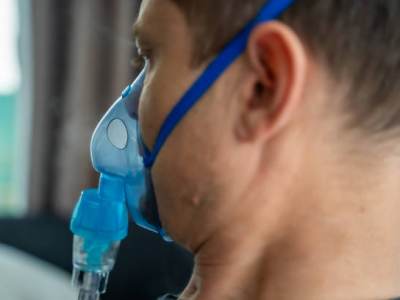Researchers at an Indian hospital have identified strains of hypervirulent, carbapenem-resistant Klebsiella pneumoniae associated with extremely high mortality rates, according to a new study in the Journal of the Association of Physicians of India.
The findings represent the first report of a hypervirulent form of the drug-resistant pathogen in India, the authors of the study say. Strains of K pneumoniae that combine carbapenem resistance and hypervirulence, which to date have been reported only in China, can cause severe infections that spread quickly throughout the body.
Infectious disease experts have called the combination a "worst-case" scenario that poses a significant threat to public health.
High mortality tied to high resistance, hypervirulence
In the study, researchers at Christian Medical College in Tamil Nadu state tested isolates of carbapenem-resistant K pneumoniae obtained from 86 patients hospitalized with bacteremia in 2015 and 2016. They conducted antibiotic susceptibility testing to assess resistance to meropenem, performed string tests to evaluate virulence, and looked for carbapenem-resistance and virulence genes using polymerase chain reaction (PCR) analysis. They used multilocus sequence typing (MLST) to determine the sequence type (ST) of 10 of the isolates.
The results were then analyzed for association between 30-day mortality, meropenem minimum inhibitory concentration (MIC), string-test positivity, and carbapenem-resistance genes.
Of the 86 isolates tested, 27 (31.3%) had a positive string test, which indicates hypervirulence. But PCR tests found that only 3 of the string-test-positive isolates contained the rmpA2 hypervirulence gene, and none contained the rmpA or magA hypervirulence genes. The authors say the absence of these genes could indicate that other genes were responsible for the hypervirulence. The most common carbapenem-resistance gene found in the isolates was blaNDM.
MLST indicated that two of the isolates belonged to ST231 and one each to ST11 and ST43—clonal types that have previously been reported in carbapenem-resistant K pneumoniae. A hypervirulent, carbapenem-resistant ST11 strain was implicated in a 2016 outbreak of ventilator-associated pneumonia at a Chinese hospital that left five patients dead.
Case-fatality rate 56%
The overall mortality among the patients was 55.9%, which is higher than the 42% that's previously been associated with carbapenem-resistant K pneumoniae. But it was significantly higher in patients with string-test-positive isolates (74.1%) and isolates with a meropenem MIC equal to or higher than 16 micrograms per milliliter (mcg/mL, 67.9%). Isolates with both positive string tests and high resistance to meropenem were associated with a mortality rate of 84.2%. String-test-positivity (odds ratio [OR], 2.2, P = 0.036) and a meropenem MIC of 16 mcg/mL (OR 9.5, P = 0.008) or higher were both independently associated with mortality.
The median age of the patient was 37.5 years, and 52% were immunocompromised. Ninety-two percent of the infections were associated with healthcare.
The authors of the study say their findings indicate clinicians will need to be on the lookout for these strains.
"It is important to monitor the prevalence of CR-hvKP [carbapenem-resistant hypervirulent K pneumoniae] among invasive isolates, as they pose a public health threat in the treatment and management of infections," the authors write. "The combination of increased virulence and decreased susceptibility to antimicrobials is very challenging to treat and hence results in worse outcomes."
See also:
December 2018 J Assoc Physicians India study
Sep 8, 2017 CIDRAP News story "New Klebsiella strains 'worst-case' scenario, experts say"
























